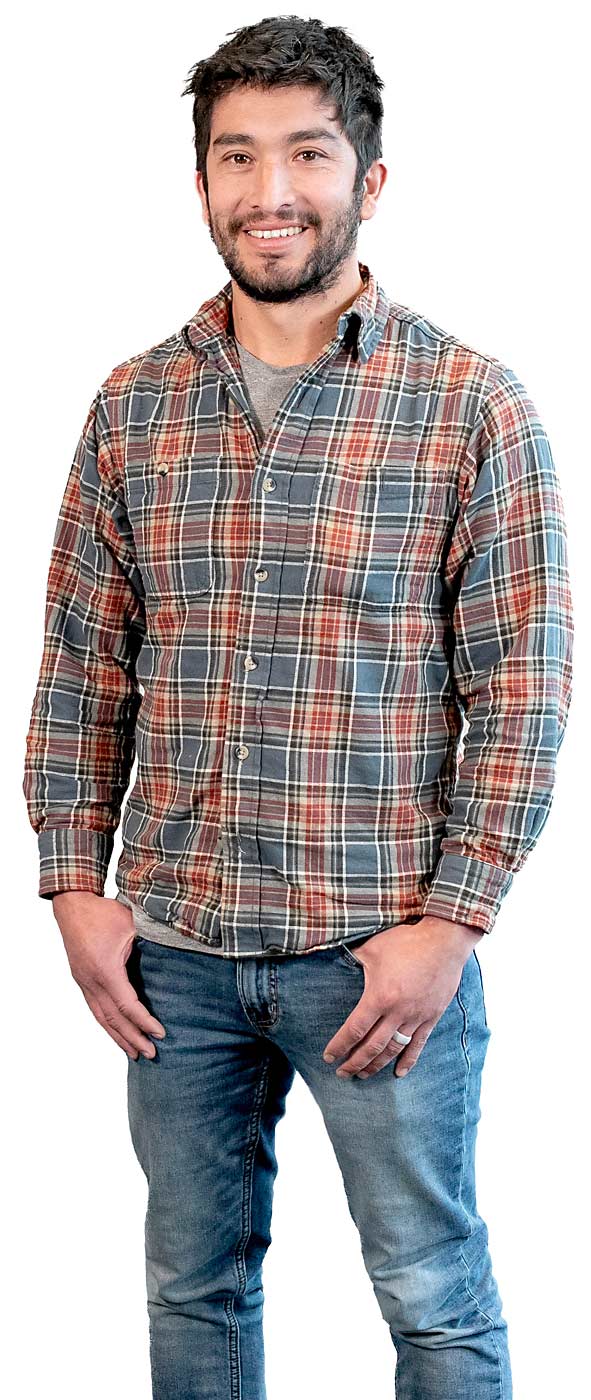family background/ Manuel grew up on a coffee farm and graduated with a degree from Universidad de Antioquia in Colombia. He’s the first in his family to grow tree fruit. He is married to Katie (Rasch) Vargas and is the son of Ligia Marin and Gabriel Vargas.
age/ 34
hometown/ Jardín, Colombia
crops/ apples
role/ grower
business/ Joe Rasch Orchards, Sparta, Michigan

When did you get your start in ag?
I was 6 years old, that’s about when I’d do work before going to school at our coffee farm. I’d have two or three cows for making cheese and milk, and that was my first work in the morning.
Wake up at 5 o’clock, go and cut the grass for the cows with a machete to feed them and then milk them. After school, I’d come back and do different jobs like picking the coffee or taking the peel off, depending on what was needed on the farm. Not too much playtime.
Why did you go to university?
In Colombia, at 15 years old we need to make a choice about what we’d want to study. I always loved biology and chemistry and physics, and I know about food, so I thought maybe I can learn something good by going into food engineering.
By 11th grade, if you choose university, you’d need to do a test and choose what you’re going for. If you are a good student and do well on the tests, you’ll only pay like $1 per semester. I was good on both, so that’s what I ended up paying — which was good because I didn’t have much money to pay for school.
You need to be very disciplined in both school and what you decide to do before you proceed through university. I also needed to support myself, so on the weekends I’d work as a butcher in town and deliver to the restaurants by bicycle.
That job helped me pay rent, because banks aren’t going to loan you money for college — you need to live day by day with whatever you can make.
How did you get into the tree fruit industry?
We don’t grow apples where I grew up. When I first came to the U.S., I was on a tourist visa to visit my then-girlfriend, Katie, for two months, and I stayed on and worked on the process of legally working here.
When her dad, Joe Rasch, asked me to help on the farm, he had me managing a crew all the way through picking season. Little by little, I learned English over six months.
On the farm, some of the things I learned in university, such as all the chemical classes, helped when Joe was trying to explain to me how they worked, why they put something on the ground, because I already had that background.
What were some of your early challenges?
Learning to manage people. When you’re a small farm you only have a couple of guys. But when you have 100 people and you’re responsible for how they are treated, it’s a lot more of a challenge to be fair with everyone.
Paying attention to how you speak to the crews, that the instructions make sense and that you treat the people well is important, because they are an important part of the farm.
What is the orchard like, and what have you learned?
We have a lot of tall spindle and some older orchards, and we don’t have any V systems. Because of the weather and clouds, I don’t think V systems would work well. There’s much I still need to learn with that. We do use platforms and normally prune everything on Brownies (hydraulic lifts) and platforms.
When we do hedging, I have a lot of ideas how we can improve what we do with the machines to help people pick and reduce bruising in the trees. I’m learning about better spray practices to protect our beneficial insects and also how to improve the crop load through better pruning decisions.
Do you have any advice for other young growers?
When you’re working on a farm, get to know your people. I know every single name of every person who works on the farm. I try to have a good relationship with them and build them up, because it helps in the long term when they know you don’t see them just as a worker.
My hope is they may work harder and be more positive about the job. I’d also encourage growers to go to the countries where their workers live and see what they do and how much they sacrifice to come work on your farm.






Leave A Comment